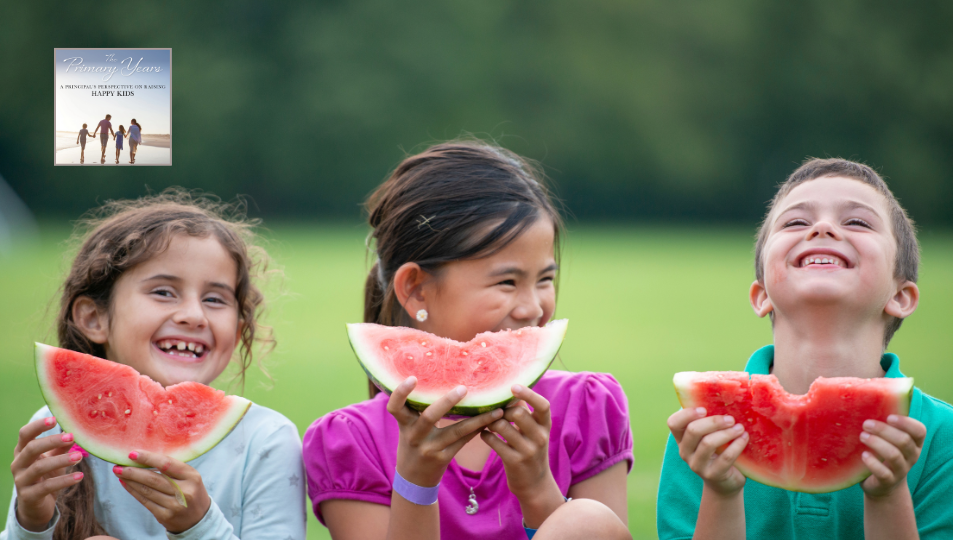
The Little Things That Matter Most: How Small Moments Shape Your Child’s World
As parents, we often feel pressured to do something grand to make a real difference. But the truth is, the small, everyday moments leave the deepest imprint. Here are some simple ways you can make a big impact in your child’s life, one little action at a time.

Raise a Hopeful Child: The Power of a Proactive Parent
Tired of always reacting to meltdowns and lost lunchboxes? What if you could shape how your child sees the world instead? In this blog, we explore how small, proactive steps can build resilience and boost your child’s mental health.

Raising a Confident Child in Today’s Classroom: 5 Surprising Ways Parents Can Help
Confidence is a skill, not a trait and it grows with practice, praise, and patience. Every child develops it differently, and that’s okay. Explore the five simple ways to support your child’s confidence in today’s classroom.

Helping Your Child Find Balance in their busy life
Too many activities, too much pressure, and too little downtime can leave children overwhelmed. The good news? Balance can be taught. Home can be a space where your child learns to pause, play, and thrive. Read on to discover simple ways to bring more balance into your child’s life.

"I Just Don’t Know How to Help!" – A Parent’s Guide to Coping When School Gets Tough
Let’s take a closer look at how to gently support your child when school becomes a challenge. With slow, steady support, regular check-ins, and working through the ups and downs together, you’ll be showing them the kind of care that builds trust and resilience. Let’s break it down and explore how you can navigate this journey together.

Letting Go a Little: Why Gradual Independence Matters for Your Child’s Growth
Letting go a little doesn't mean stepping back; it means stepping alongside. Gail Smith shares how allowing our children to try, stumble, and learn with our support (not control) builds the confidence and independence they need to grow.

Simple ways to help your child with their anxiety issues
Today’s children are growing up in a world filled with pressure from school demands to social media and even the stress they sense from adults. It’s no surprise that anxiety is becoming more common in younger children. The good news? We can teach them how to cope and thrive. Building resilience doesn't mean they'll never face challenges. It means they'll have the tools to bounce back, try again, and keep moving forward. And that’s one of the greatest gifts we can give them.

Learning about balancing holidays and school terms
The holidays bring excitement and a little chaos! As parents juggle school responsibilities and festive fun, it’s important to keep things steady. Gail Smith reminds us that holidays don’t need to be perfect. Focus on rest, fun, and gently keeping kids aware that school will return soon. A little structure goes a long way in helping children feel secure and ready for the term ahead.

As a parent remember to listen well
Children learn by example, and when parents practice active listening, they teach valuable communication skills. When a child feels heard, they understand that their thoughts and feelings matter, building their confidence and sense of self-worth. Gail Smith shares five compelling reasons why truly listening to your child is essential for their emotional and social development.

Understanding Your Child’s Weekly Challenges at School And How You Can Help
As a parent, understanding what your child faces at school can help you provide meaningful support at home. Here’s a guide to some common challenges children encounter and simple actionable ways to help them thrive.

How to Support Your Child’s Mental Health Through School Without Over Complicating It
Supporting your child’s well-being doesn’t have to mean long lectures or expensive therapies. Gail Smith shares simple yet effective ways that you can apply to make a real difference in supporting your child's mental health.

How to Help Your Child Thrive at School Without the Stress!
School life is full of twists, turns, and loop-the-loops. As a parent, you’re the safety harness, keeping your child steady through the ups and downs. But how can you support them without adding to the pressure? Here’s the quick-start guide to helping your child navigate school life with confidence and ease.

Encourage a Wide Net of Friends: Why It Matters.
Friendships are key to a child’s happiness, but relying on just one best friend can lead to heartbreak. Gail Smith highlights why encouraging kids to embrace new friendships is so important.

Helping Your Child Navigate Friendships and Challenges
Navigating friendships, forming them, losing them, and finding new ones is a natural part of childhood and essential for social and emotional growth. Here are five impactful ways parents can guide their children in fostering strong, healthy friendships and overcoming the challenges that come with them.

Five simple but practical ideas for parents to find a balance between a busy life and dealing with school matters.
Balancing work, life, and your child’s school commitments can feel overwhelming, but it doesn’t have to be. Gail Smith shares five simple yet practical tips to help busy parents stay engaged with their child’s education while managing their own demanding schedules. While perfection may be out of reach, these strategies can help you find a better, more manageable balance.

5 TIPS TO REDUCE ANXIETY IN YOUR CHILD WHEN STARTING SCHOOL
Starting a new school year can be a big adjustment, especially for kids feeling a little nervous. As a parent, you can help ease their worries and boost their confidence with simple strategies. A smooth start sets the tone for a great year ahead! Gail Smith shows you how you can support your child through this transition.

Five simple but powerful tips for parents to help their child start school on a positive note
With school reopening soon, take a moment to chat with your child about their holiday highlights and what they'll miss. This helps them transition from break to school. Ask them what they're excited about, whether it’s seeing friends or new activities. These simple conversations can set a positive tone for the new school year.

A Few wise thoughts about getting ready for Christmas
The festive season can sometimes feel overwhelming, with endless to-do lists and expectations piling up. This year, why not focus on what truly matters? Spending quality time together as a family. Use this season of change as an opportunity to reconnect and remind yourselves of the joy and love that make family the heart of this special time.

Holidays are a great time to reinvigorate relationships with your child
Year-end holidays are a special time for families to reconnect, break from routine, and enjoy quality moments together. In this blog, Gail Smith shares why these holidays are essential for strengthening family bonds and creating lasting happiness.

5 Simple Tips to Help Your Child Finish the School Year Strong
The end of the school year can bring a mix of emotions for children, from saying goodbye to teachers and classmates to facing uncertainties about the year ahead. Supporting your child through this transition is key to easing their anxieties and helping them embrace the changes. Here are some simple strategies to create a positive closure to the school year and prepare for what's next.